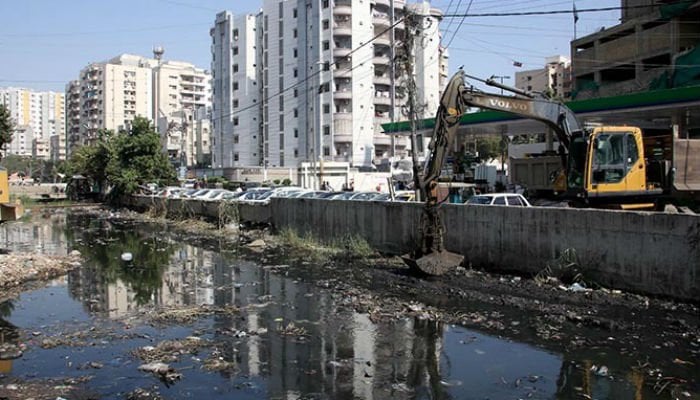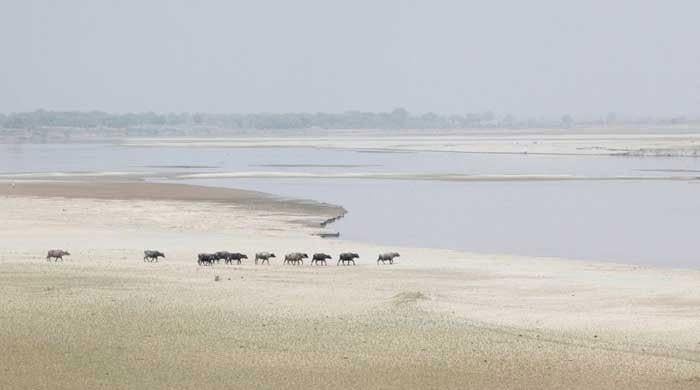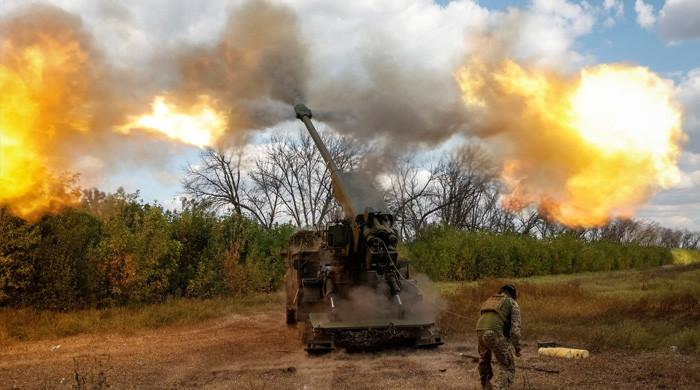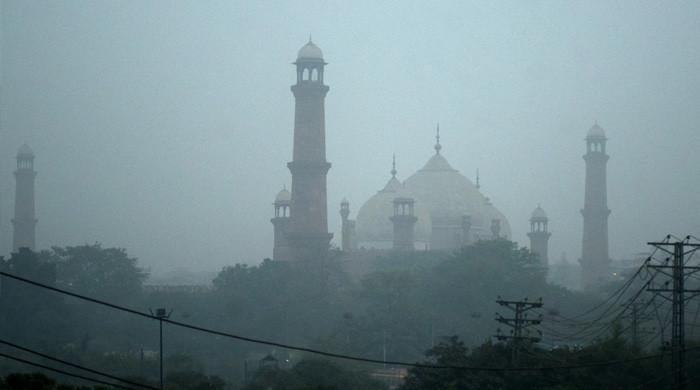The land where insanity dwells
Quarrels between the current mayor of Karachi, the former mayor, bitter jibes exchanged between them allowed the junk to keep creeping up metre by meter
September 05, 2019

Let us imagine a visitor from Mars, or perhaps just another country on Earth itself, who arrives in Karachi – possibly under the government’s initiative to promote tourism.
What does s/he see? Heaps and heaps of garbage, waste collected from sewage lines dumped alongside them, swarms of flies which have come with the garbage and a city which essentially appears to have no one looking after its civic interests at all.
This is Pakistan’s largest city. Should this unfortunate visitor be a newspaper reader, he will also quickly discover the true extent of the madness. Quarrels between the current mayor of Karachi, the former mayor, bitter jibes exchanged between them and also politics from both the provincial and federal government allowed the junk to keep creeping up metre by meter.
We wonder if anyone except the 20 million people who reside there would choose to remain in this pit of stench and its aggressive flies which burst their way through every window and door opening for any longer than the departure of the next flight.
Let us assume this next flight takes our tourist to Peshawar – that historical city once visited by thousands each year given its history and its rich culture. Today, pillars for the Bus Rapid Transit project stand at unusual places along its roads, stations being built around the track have narrowed vehicular access and the city has been turned into a maze which is difficult to transverse by car or bus in its busiest places.
There is also no longer any definite word from the government on when this project, involving buses running along an elevated track, is to be inaugurated. Delays have run to months already and the cost of the project is now somewhere in the region of Rs66 billion. The falling price of the rupee has added to the expense – and every few days some small report in one newspaper or the other speaks of another design flaw having been discovered in the project, which was intended to provide cheap, rapid transport for the millions of residents of Khyber Pakhtunkhwa’s capital.
Public transport was and is badly needed. The chaos that has surrounded it is not. Any outsider would undoubtedly wonder if the country was perhaps run by persons who lacked reason and certainly genuine will to work together to change realities.
This is true of all governments no matter which party leads them and it extends also into other areas like the Senate where 64 senators stood up to support the resolution to oust Chairman Sanjrani, but only 50 of these learned men were actually doing so, with some quite surprisingly managing to spoil their ballot sheets, thus making them invalid. The opposition was then unable to gain the 53 votes it needed to oust Sanjrani.
Nothing ever follows a script in our country, and this, of course, makes it an exciting place for a novelist or a historian such as journalist Ryszard Kapuscinski who has with irony and poetry and wit captured revolution and a descent into anarchy in nations that include Iran, Ethiopia, the former USSR and many others. Today, had he been alive even Kapuscinski may have had a difficult time capturing the events in Pakistan and all that lies behind it.
It is unfortunate that our country, which has amongst its numbers so many competent people, should be run by completely incompetent ones in terms of day-to-day administration. Because of the realities that exist, people who possess intelligence and knowledge choose to steer clear of politics or even the increasingly corrupted administrative system, instead moving into the private sector or else finding abodes abroad.
We also seem to suffer from a lack of conscience. It would have been expected that some senior member of government in Karachi would have resigned by now in acceptance of responsibility for forcing citizens to trawl through slime and on a daily basis combat civic disaster. Experts have already pointed out that there is simply not enough dumping ground for waste in Karachi. This takes us to the issue of why there had been no process of planning or realisation of this long before a beautiful city was turned into a living garbage heap.
An example of what conscience means was set in India by 33-year-old Indian Administrative Service officer Kannan Gopinathan who resigned from his post far away from Kashmir in protest over the policies being followed there by the government he represented. The young man, who had a long career ahead of him with all the perks and privileges that go with civil service, said he believed he had no option but to step down and make what gesture he could.
Of course, India needs many more people like him. But so do we. It is apparent that with our rationality, our conscience or the desire to do the right thing has gradually vanished over the years. The result is a state that crumbles into chaos with no one appearing to care or do very much to save it.
In Lahore, the Orange Train project, the cornerstone of the Shahbaz Sharif government, threatened buildings which had stood in the city for centuries; some historical places were destroyed; hundreds of families were displaced and are still to find homes. But this did not move anyone to resign, and compelled only a few to campaign against a project which could and should have been designed differently or left aside while other priorities such as the hunger of 50 per cent of people in the country, including those in Punjab, was tackled.
There is also nothing sane about a nation which allows its people to die from lack of food. According to the latest National Nutrition Survey completed under the National Ministry of Health Services, 50 per cent of households in the country survive on only a single meal a day and at least forty per cent of children are stunted, 18 per cent wasted and one in three underweight. These figures mean that when our tourist who ventured into Karachi goes to buy a set of clothing for his or her children alone, s/he will find when he asks for a shirt for, say, a six-year-old, s/he will often be handed one – at least at the lower end of the shopping market – that would more usually fit a two or three-year-old in other countries.
There is also dichotomy between the sizing of clothing sold at high-end clothing stores for children and in the bazaars of Karachi, Lahore or Rawalpindi. The question is if anybody is willing to begin the Herculean task of tackling the Hydra-headed monster. It has many roaring heads waiting to strike. Slaying it would take a person with tremendous force and enormous willpower, or better still a team that can act together rather than direct petty comments designed to hurt the interests of another political party and weaken it. This is more important today than at any previous time in our history.
The writer is a freelance columnist and former newspaper editor.
Email: [email protected]
Originally published in The News











